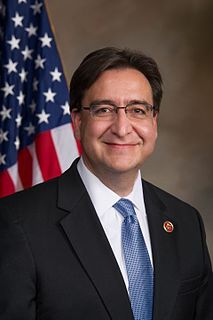A Quote by Kat Timpf
As a general rule, I don't like to see laws that allow for the arrest and incarceration of people based on a sort of subjective standard.
Related Quotes
We have to change laws. We have to change our approach to policing and incarceration in general. But we can get the population to a point where we can then go to the community-based facility models, where people should be able to await their trial dates, or if you're in jail for a year or less, if you have some sort of time that you have to spend in jail, that you can do it closer to your networks. Your family can visit you. You can talk about other ways of having people complete their time.
Our youth can not understand why society chooses to criminalize a behavior with so little visible ill effect or adverse social impact... These young people have jumped the fence and found no cliff. And the disrespect for the possession laws fosters a disrespect for laws and the system in general... On top of this is the distinct impression among the youth that some police may use the marihuana laws to arrest people they don't like for other reasons, whether it be their politics, their hair style or their ethnic background.
Law, in its most general and comprehensive sense, signifies a rule of action; and is applied indiscriminately to all kinds of action, whether animate, or inanimate, rational or irrational. Thus we say, the laws of motion, of gravitation, of optics, or mechanics, as well as the laws of nature and of nations. And it is that rule of action, which is prescribed by some superior, and which the inferior is bound to obey.
If you have laws and legislation that ban certain things based on the principles of the Scriptures and based on your Christian background, then let it stand there. Who is having big debates with the Islamic people about it (gay rights)? Who is telling them to bend their laws? If your laws are based on your Christian points of view, then you must stand your ground?
[T]he Constitution ought to be the standard of construction for the laws, and that wherever there is an evident opposition, the laws ought to give place to the Constitution. But this doctrine is not deducible from any circumstance peculiar to the plan of convention, but from the general theory of a limited Constitution.
I call government that works the best for people open society, which is basically just another more general term for a democracy that is - you call it maybe a liberal democracy. It's not only majority rule but also respect for minorities and minority opinions and the rule of law. So it's really a sort of institutional democracy.
Our work on light bulbs wasn't an arbitrary mandate. We didn't just pick a standard out of the air, or look for a catchy sounding standard like 25 by 2025 not based in science or feasibility. Instead, we worked with both industry and environmental groups to come up with a standard that made sense and was doable.
As for geoengineering, there have been serious general critiques that I think cannot be ignored, like Clive Hamilton's, along with many positive assessments. It is not a matter for subjective judgment based on guesswork and intuition. Rather, these are matters that have to be considered seriously, relying on the best scientific understanding available, without abandoning sensible precautionary principles.






































